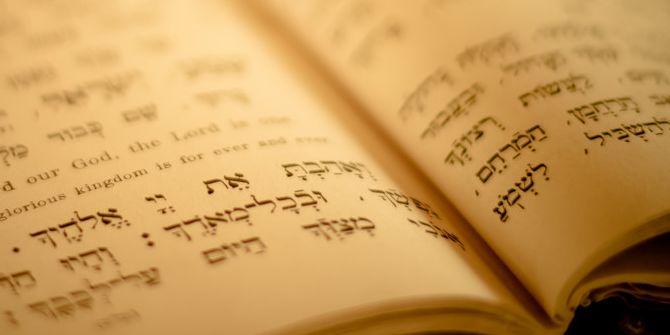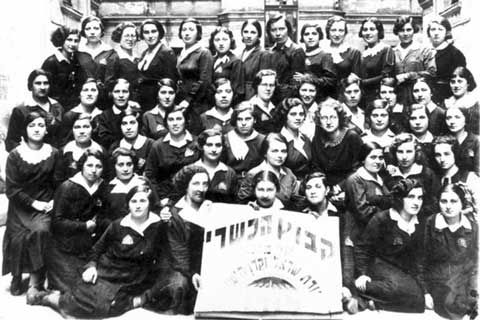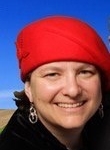The ordination of the UK’s first female orthodox Jewish Rabbi will be a landmark moment, yet her impending move to the US highlights the relative complexity of female orthodox leadership in the UK. Lindsay Simmonds outlines how a female leadership presence increases the theological possibilities available to the community, and discusses how the local UK context remains more conservative and male-dominated than the orthodox communities in the US and Israel.

On 30 March, the Jewish Chronicle’s front page stated, “Rabbi Dina, frum and Feminist”. Frum is Yiddish for religious, and the alliteration proved irresistible. In June, Dina Brawer will become the UK’s first ordained female orthodox Rabbi, and her ordination is suffused with the ongoing contemporary debates surrounding orthodox Jewish women’s religious lives – as educators, as leaders and as authorities on religious legal matters. There is no programme of orthodox ordination of Jewish women in the UK. Brawer completed her studies virtually, through the Maharat programme based in Riverdale, New York.
Brawer’s imminent ordination changes the landscape of the religious experience of all orthodox Jews, worldwide. Orthodox Jewish women’s education has transformed over the last century, propelled by Sarah Schenirer’s establishment of the Bais Ya’akov school system in Poland (circa 1933). This insistence on better girls’ religious education led to the promulgation of Jewish education for orthodox girls and women globally. Indeed, it is reasonable to suggest that although the trajectory of Schenirer’s educational pursuits were unknowable at the time, Brawer is a product of her then-radical project. But Brawer has been both educated and ordained in the US, and is moving to the US to begin her career there this summer. Her decision exposes some of the complications in navigating orthodox Jewish life for women here in the UK.

Arguably, all religious life involves theological wrangling and ongoing interpretation. Religious Jewish life demands the constant negotiation of how Jewish Law (halakha) functions in its geographic and historical location. It is always contemporary – that is the point. In the case of Jewish Law this is organised in the following tripartite manner: a question is asked to an established authority figure – a decisor (posek). The decisor takes into account previous written and/or oral discussion about the particular topic, the impact on and the personal situation of the person asking the question and, critically, the normative practice of the local Jewish orthodox community. These questions range from everyday concerns about the suitability of food (kashrut), to the use of birth control or managing religious divorce.
What is pertinent in these negotiations is the necessity and appreciation of local custom. This engenders, therefore, a significant number of opinions within the Jewish legal framework, each held as ‘reasonable’ or ‘intelligible’ within its own cultural (local) location. What this also means of course is that what people do matters – not only with regard to ritual performance within their own religious location, but as a generative global possibility for other orthodox Jewish communities worldwide. In other words, if this particular community practices this ritual in this way, is it permissible or even preferable for me to do so too, in my own particular geographic or cultural location?
My current PhD research explores the performance of local customs by British orthodox Jewish women (BOJW) in three areas of religious life: education, ritual participation, and authority and leadership. I argue that these three performative arenas might not only be locations of religious significance, but are also acutely demonstrative of the ongoing negotiation between British orthodox Jewish women, their local religious communities and its exclusively male leadership, such that their participation is itself generative – not only locally, but also (potentially) globally. Indeed, I argue that women’s performance of certain ritual acts actually changes the meaning of those religious acts and that, crucially, this is a natural part of the evolution of any living religion – arguably inherent to Judaism. In other words, ritual acts and who performs them both produces, as well as demonstrates, the religious meaning attributed to them.
The UK orthodox community is perhaps particularly affected by this phenomenon, conceivably because it is markedly more conservative than the two most influential global orthodox Jewish communities: the United States and Israel. Over the last 30 years feminist thought has had an enormous impact on orthodox Jewish religious life – and significant changes to education, ritual participation and leadership reflect this. However, the British orthodox Jewish community has historically been painfully slow to either contemplate or negotiate this complicated terrain in open religious debate, or to make tangible and practical shifts in education, religious ritual practice or positions of leadership for women. There are, without question, significant exceptions to this general rule: Partnership Minyanim (semi-egalitarian prayer services); the Ma’ayanot Programme; the proliferation of women’s Megillah Readings (ritual chanting of the Book of Esther on the festival of Lots); and the appointment of a female Scholar-in-Residence at Hampstead United Synagogue.
However, given the normative shifts in the US and Israel, and the influence and halakhic importance of the global effect of local community norms, the delayed response in the UK’s orthodox Jewish community is palpable. Many of these developments have troubled the established orthodox male leadership, often frustrating the aspirations of orthodox Jewish women in their desire to participate more in ritual life, to become more conversant with Jewish legal texts and to take up positions of religious leadership.
The performance of our religious selves, at home, in the local Jewish community and worldwide, continually and continuously disrupts and shifts the status quo of religious practice. Halakha regards these disruptions as part and parcel of the ongoing lived experience of orthodox Jewish life, at times welcoming them, and at other times rejecting them. But what people do, the religious acts they perform can never be ignored, and they are always part of the halakhic system of debate and decision-making. As Tamar Ross, feminist orthodox Jewish philosopher remarked in Expanding the Palace of Torah, ‘… no matter how much the halakhic establishment seeks to privilege its authority, in reality the lived experience of the community of the committed cannot be ignored, and the final outcome is always some form of dialectic and negotiation between the two.’
It is a desperate shame that one of the UK’s brightest, boldest and most influential orthodox Jewish women is unable to find a home to flourish in the UK’s orthodox community. She has brought the value of serious religious study, of commitment to orthodox practice and the value of orthodox Jewish women’s voices to the forefront of the established orthodox Jewish communities, and I for one will miss her.
About the author
 After her undergraduate degree, Lindsay studied in Jerusalem at Nishmat and Midreshet Lindenbaum. On returning to the UK, she graduated as a Susi Bradfield Scholar from the London School of Jewish Studies (LSJS) and received her MSc in Gender Studies from the LSE’s Department of Gender Studies, where she is completing her PhD researching British orthodox Jewish women. Lindsay lectures at LSJS and speaks at national and international conferences on Judaism and Gender, and is a member of the Cambridge Co-Exist Leadership Programme which promotes friendship and collegiality between leaders of the Abrahamic faiths. She is the Jewish Scholar-in-Residence for the Council of Christians and Jews.
After her undergraduate degree, Lindsay studied in Jerusalem at Nishmat and Midreshet Lindenbaum. On returning to the UK, she graduated as a Susi Bradfield Scholar from the London School of Jewish Studies (LSJS) and received her MSc in Gender Studies from the LSE’s Department of Gender Studies, where she is completing her PhD researching British orthodox Jewish women. Lindsay lectures at LSJS and speaks at national and international conferences on Judaism and Gender, and is a member of the Cambridge Co-Exist Leadership Programme which promotes friendship and collegiality between leaders of the Abrahamic faiths. She is the Jewish Scholar-in-Residence for the Council of Christians and Jews.
Note: This piece gives the views of the author, and not the position of the LSE Religion and Global Society blog, nor of the London School of Economics.





